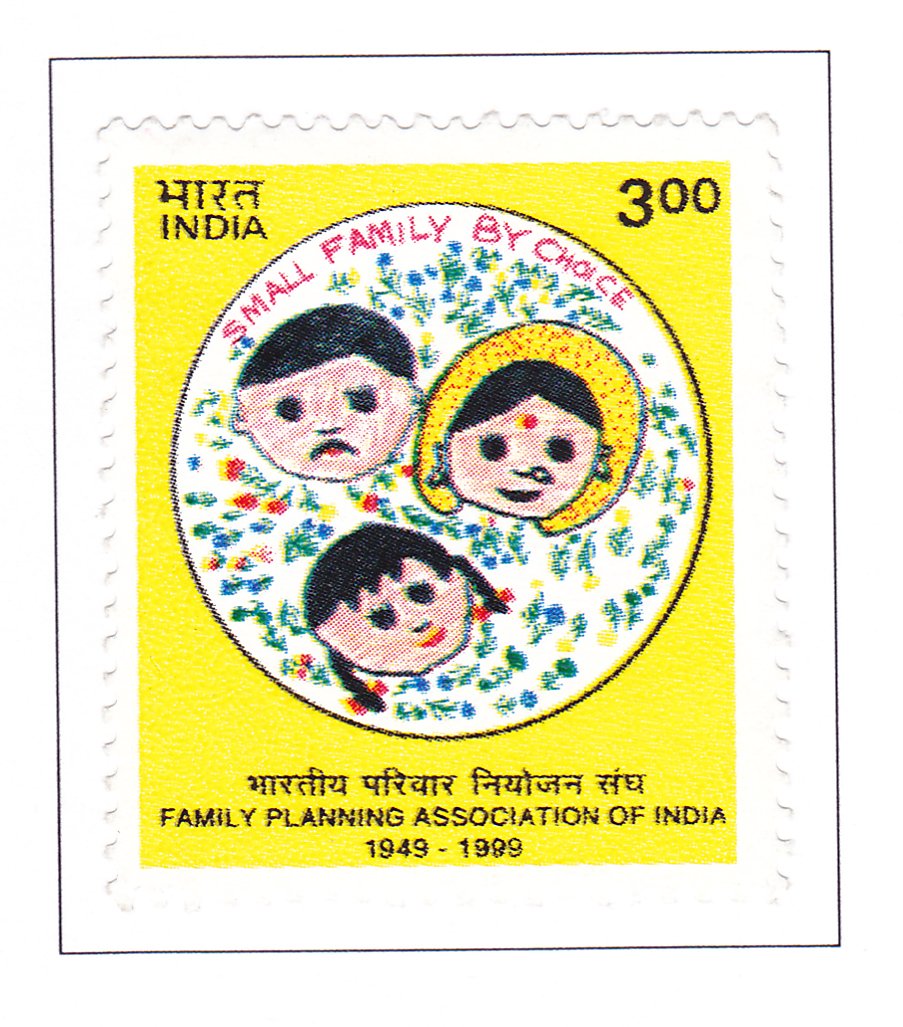Family Planning Association of India

Technical Data
| Stamp Set | Golden Jubliees |
|---|---|
| Date of Issue | December 18, 1999 |
| Denomination | Rs. 3 |
| Quantity | 1,000,000 |
| Perforation | comb 14 |
| Printer | Security Printing Press, Nashik |
| Watermark | No Watermark |
| Colors | Multicolor |
| Catalog Codes |
Michel IN 1729 Stamp Number IN 1790 Yvert et Tellier IN 1498A Stanley Gibbons IN 1892 |
| Themes | Anniversaries and Jubilees | Children |
Table of Contents
Commemorating Family Planning and the Family Planning Association of India (FPAI)
Introduction:
India, with its vast population and growing demographic pressures, is the largest functioning democracy in the world. It occupies just 2.4% of the world’s land area but supports 16% of its population. The country faces the challenge of managing population growth, which increases by approximately 17 million people annually.
Family Planning Programme:
- Initiation: India was the first country to initiate a comprehensive Family Planning Programme in 1951. This program aimed to promote individual health and welfare through planned parenthood, reflecting the democratic values of the nation.
- Infrastructure Development: Since Independence, India has significantly invested in health infrastructure, establishing a network of sub-centres, primary health centres, and community health centres to provide family planning services.
Role of the Family Planning Association of India (FPAI):
- Establishment: The Family Planning Association of India (FPAI) has played a crucial role in supporting government efforts since its inception. It operates 39 branches, 20 projects, and 3 area projects across the country.
- International Collaboration: In 1952, FPAI hosted the Third International Conference of Planned Parenthood in Mumbai. This conference was pivotal in forming the International Planned Parenthood Federation, which included India and other founding members.
- Awareness and Services: FPAI has been instrumental in creating awareness about population, reproductive and sexual health, youth concerns, and women’s empowerment. It supports and mobilizes other NGOs, contributing to a national network of over 2000 NGOs focused on family planning.
Recent Developments:
- Reproductive and Child Health Programme: In response to evolving needs, the Ministry of Health and Family Welfare introduced a new Reproductive and Child Health Programme. FPAI has embraced this paradigm shift, enhancing its services to meet reproductive health needs throughout an individual’s life cycle.
- Service Delivery: FPAI’s network includes 189 clinics and mobile service units, providing a wide range of high-quality contraceptive services, including services for men. The goal is to improve the quality of life for all individuals.
Commemorative Stamp:
- Purpose: The Department of Posts issued a commemorative stamp to acknowledge the significant contributions of the Family Planning Association of India (FPAI) in supporting and advancing family planning efforts in the country.
- Design Elements: The stamp likely features imagery related to family planning, health services, or symbols representing FPAI’s work and its impact on public health.
This stamp honors the FPAI’s dedication to improving family health and well-being, highlighting its role in the broader context of India’s family planning and health initiatives.
